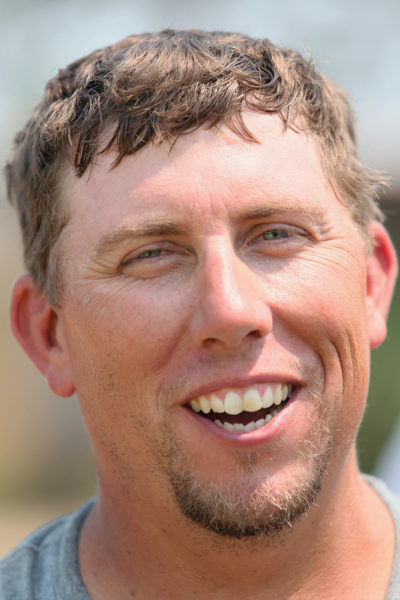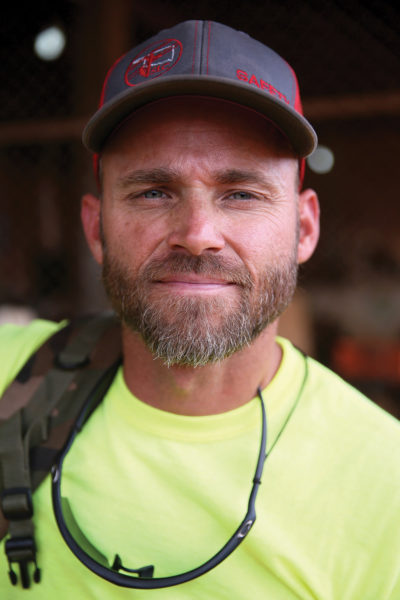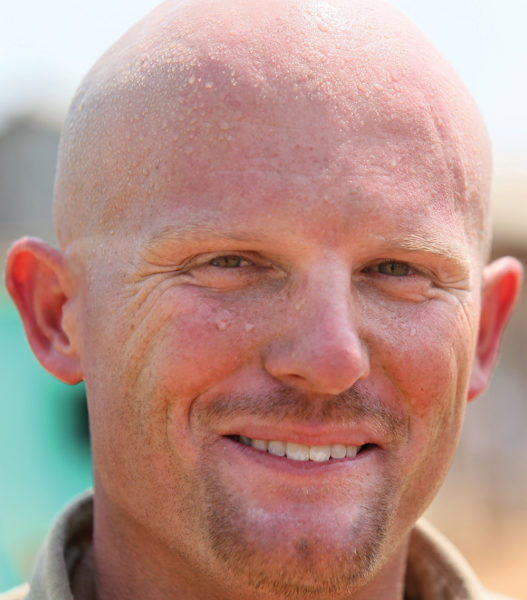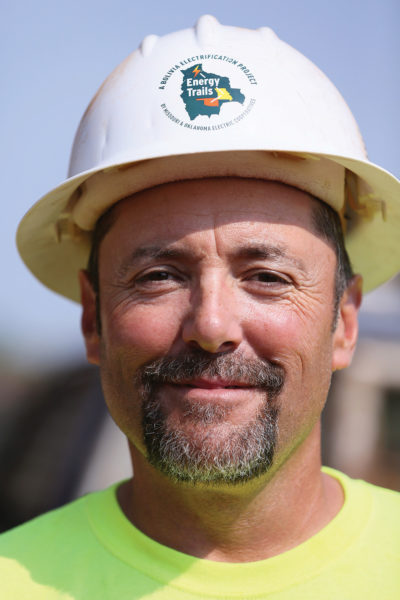Powering Bolivia
This August, 15 volunteer linemen from Missouri and Oklahoma traveled to Bolivia to bring electricity to 360 families in the towns of Dos de Junio and El Torito in the Amazon Basin. During the two-week trip, the linemen strung 10 miles of power line over 220 poles. The project was managed by the NRECA International Foundation and funded by the Charitable Foundation of the Energy Bar Association. It culminated in August with a lighting ceremony hosted by the two communities.
What follows are excerpts of interviews with six of the volunteers during the trip.
Brandon Steffen, West Central Electric Cooperative, Higginsville, Missouri
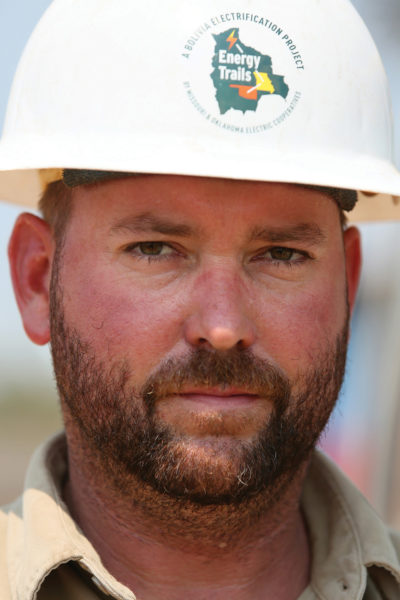
When I get home, I’m going to put my hooks on and climb a brand-new soft penna pole, because these poles are amazingly hard down here. But the first thing I’m going to do is appreciate the bucket truck. I did a lot of climbing in the last two weeks. I was trying to count how many poles I climbed in the beginning, but there were too many to count. I climbed more poles in the last two weeks than I probably have in the last two years.It’s 2016. You never think there are people that don’t have power. You just assume everybody has it. And the people here have gone so long without it. I don’t think they know exactly how much it’s probably going to change their life.
We still use all our skills at home, it’s just you don’t do it as often, you know? We still have storms where you can’t get a truck into something. So you do all this, but just not on a regular basis. So it took a lot of breaking myself back in to be climbing all day long, every day. But after a couple days, it was fine.
What I’ve been trying to do this whole time is compare it to working in a hurricane or an ice storm. But this is a whole new game in itself. It’s very humbling, just to see the way they do things and how they live here, and how much harder it is to do things. We take things for granted, myself included. And I think things will be a little different for me when I go home.
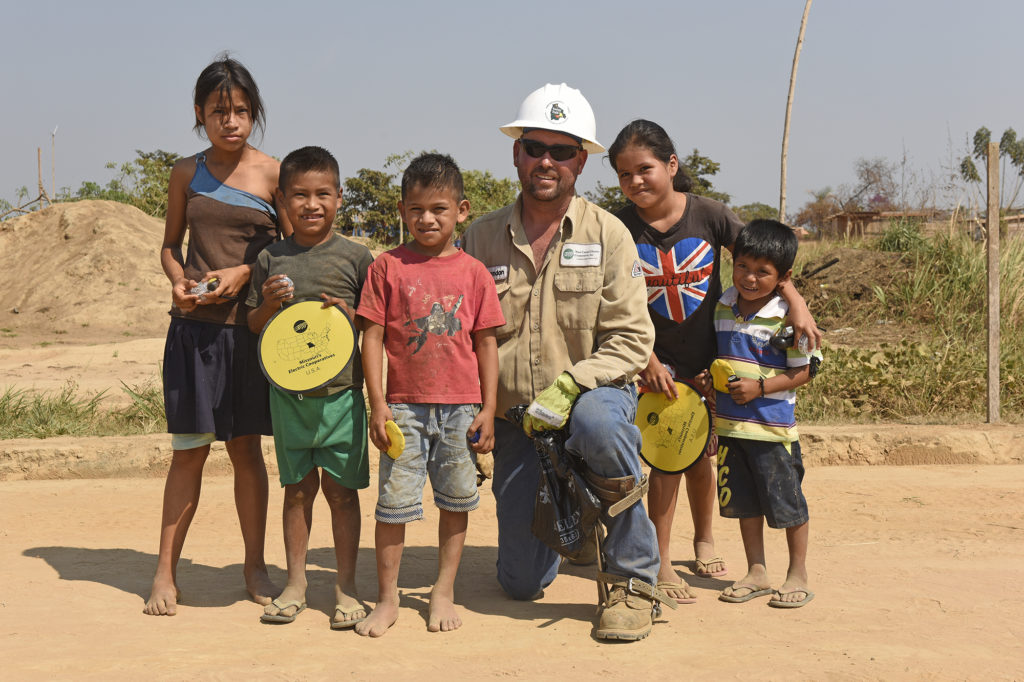
Stacy Bourne, East Central Oklahoma Electric Cooperative, Okmulgee, Oklahoma
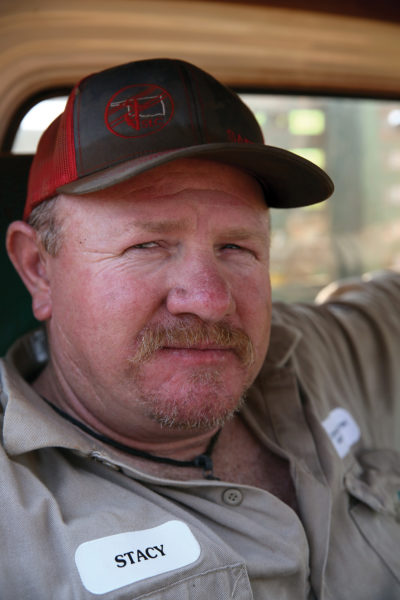
It was pretty amazing at the celebration. It was a paycheck for me. When you get people’s lights on and you get to go home, that’s the biggest deal. To see everybody benefitting from what we’ve done for two weeks.
Today we’ll go to Palomar [site of the co-op power plant and tool yard] and donate our tools to the guys. I’m giving all my hand tools and my hooks—my climbing hooks.
I’m going to explain to the boy that I’m giving mine to, to just start slow because the hooks are dangerous, and you can gaff your leg, foot, anything like that. So just start slow. These poles over here are hard as concrete. I mean, you can’t really run up them like you’re climbing real fast. You don’t do that over here, definitely. They’ve got hooks that are out of the ice age. I mean, they look prehistoric, really. I wouldn’t even dream of wearing something like that to climb up a pole. But it works for them.
This experience won’t really change the way I talk about being a lineman, but more about being a person. Giving something to people and not asking for something back. It’s like karma. It’ll come back around.
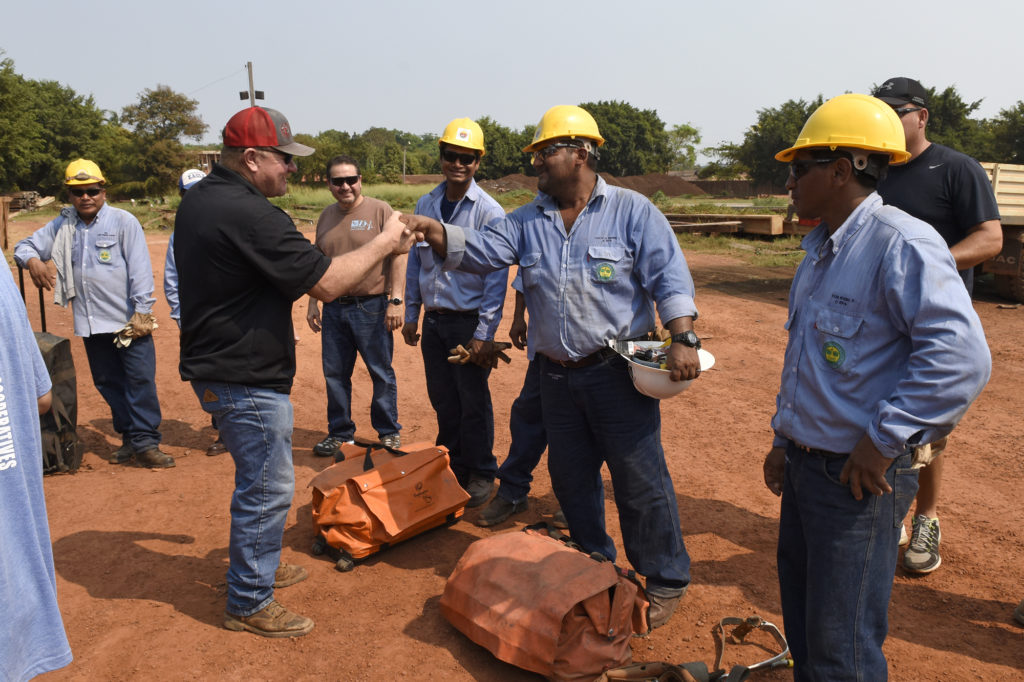
Tom Golder, Osage Valley Electric Cooperative, Butler, Missouri
Carlos is the only local lineman I interacted with. He’s been around a long time down here. You can tell he knows what he’s doing. And he was showing us little ways that maybe we wouldn’t do in the States, and he didn’t understand why we didn’t do it like that.I didn’t come on this work trip thinking of it like a storm. When you go on a storm, it’s a little bit different because people are out of power. These people here don’t have power, so they don’t know what’s coming. People in the States, they don’t like to be without power.
Like wiring the house. He was feeding it through a receptacle, which, where we come from, that’s not code, and we wouldn’t do that. But he’s very good at what he does down here. We became pretty good friends with him. He gave every one of us a big hug when we were done.
It’s a good feeling. I would love to see their faces when they walk over and press the light switch and light comes on, for the kids really. I’m sure the parents know what it’s like. I’m sure they have friends that have electricity.
But you know, some of the little ones probably have never seen a lightbulb, so I would like to be there whenever they flip a switch on and see their reaction.
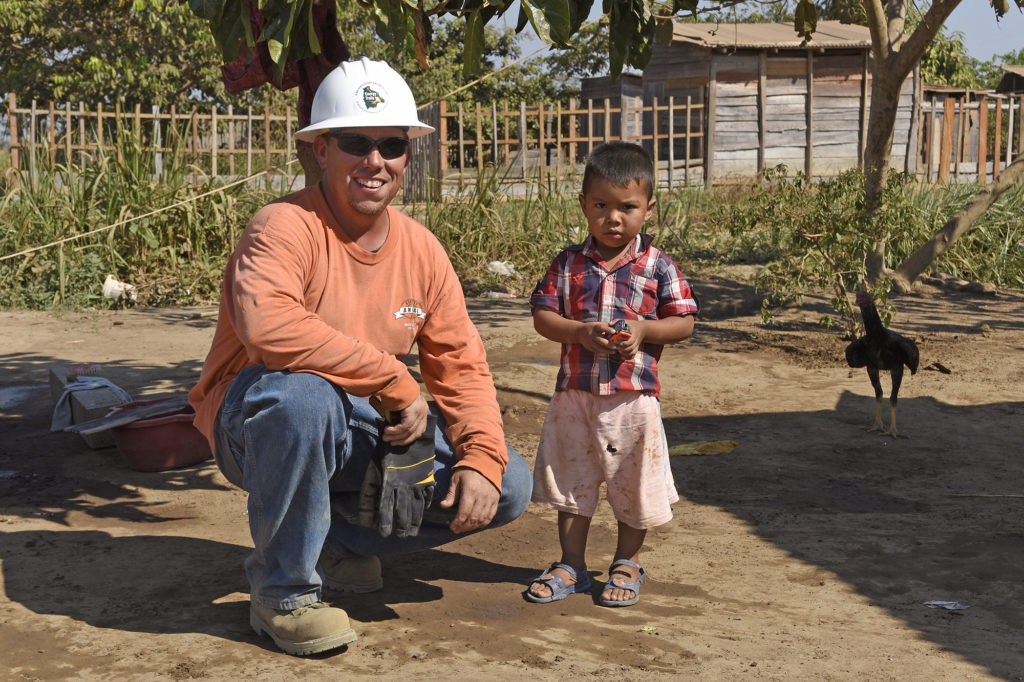
Damon Lester, Indian Electric Cooperative, Cleveland, Oklahoma
We have a lot of pride in our work and our work ethic and our abilities and even the hazards that go along with that. We’re proud to take on those challenges and work safe and stay safe, and come home to our families. But to see the flipside … we can’t even have the power blink twice a week, or we have a problem.I had an epiphany inside of a home I was walking through and couldn’t believe what I was looking at and how they lived. When I put myself in that home, and I put my family in that home, it’s almost too much. But at the same time, the people are so strong and so proud. They don’t need our sorrow and our pity. It’s a life experience to give these people something that would have taken a countless number of years for them to attain. Very rewarding.
But here, just to get something that’s safe and reliable—and safe and reliable here compared to back home, the scale is so skewed—it’s brought a whole new meaning to the work. It’s brought a whole new level of awareness of what we do and how it impacts human life.
I think the true excitement comes with the future, and the potential for growth, and how that village can expand from this, because now they have the backbone for much better quality of life for the people and a much safer environment.
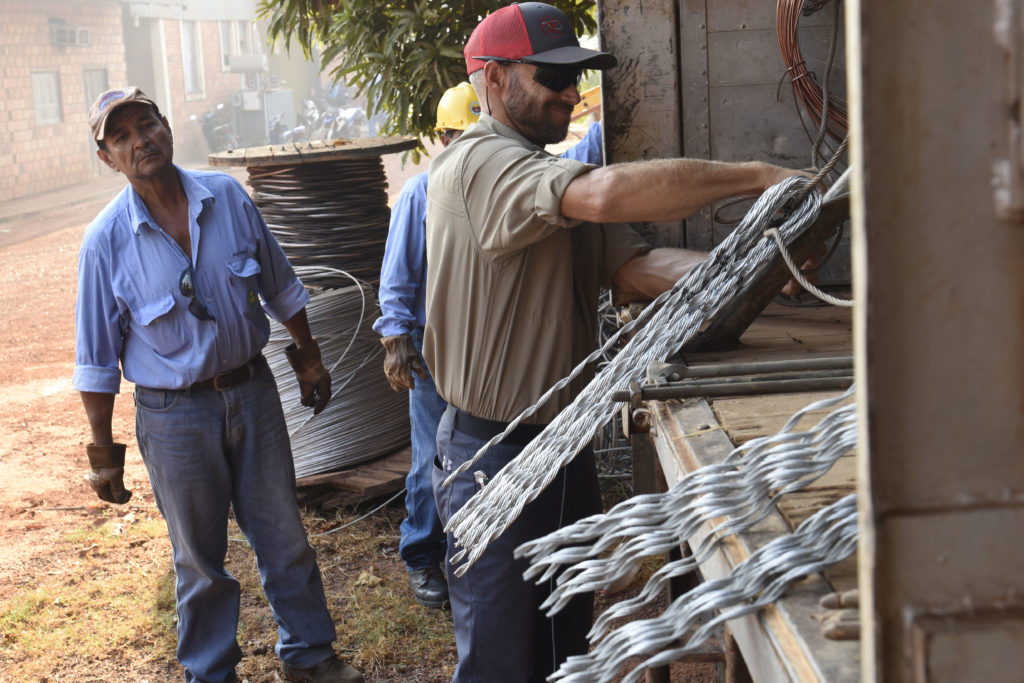
Jared Kelley, SEMO Electric Cooperative, Sikeston, Missouri
From a professional standpoint, looking at the way that the local linemen do it and seeing the way they do things, it’s a lot different from what we do. We learned some stuff from them, but yeah, I think we taught them more than they taught us. It was good to help.We use bucket trucks at home. We still climb some, but here it was all done with hooks, all manpower, and a lot of good guys to get it done. It’s like riding a bike. You never forget how to climb. We did a lot of hard work this week. Hard work reaps rewards. It’s been a lot of fun.
They grounded the lines for us, and they wanted to make sure that we knew it was de-energized. They even tested it for us one day. And they didn’t want us doing anything until they got that point across. So I think they’re pretty safety conscious, but they just do stuff a little bit different.
This lineman job, working for co-ops, gave me a lot that I’ve only dreamed of. I never expected the opportunity to come to South America to work. It’s a rewarding job, but after this week, the rewards I’ve gotten out of this are just unreal.
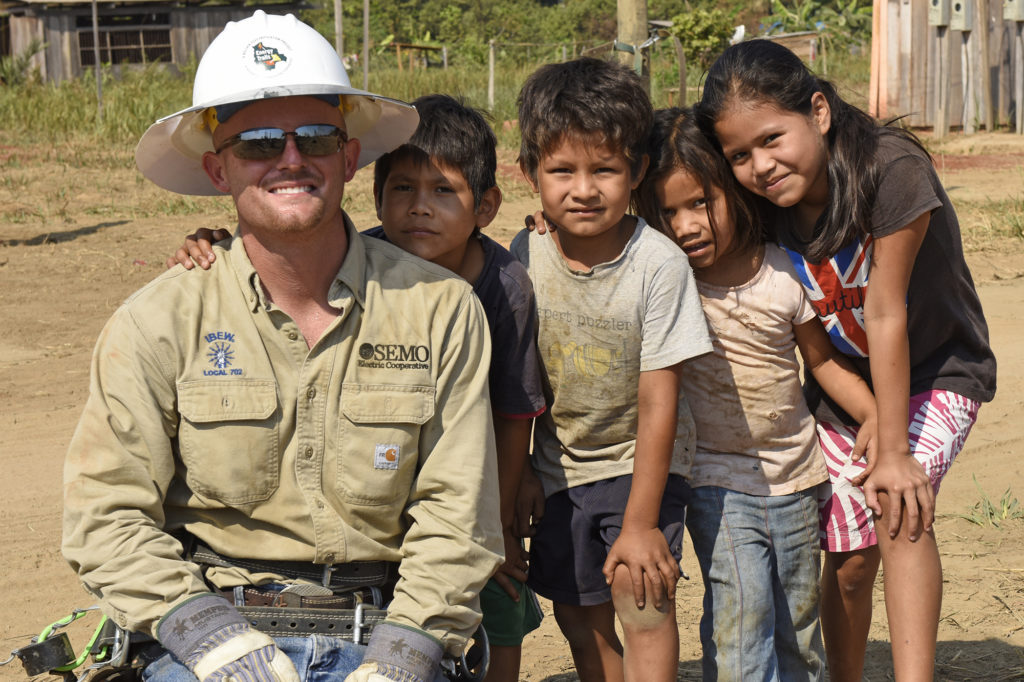
Heath Martin, Northfork Electric Cooperative, Sayre, Oklahoma
Seeing all the people show up for the celebration when we completed our project, it felt like a victory lap. It was awesome when they turned the switch on, and the lights came on.In my career, I started out as a lineman. I am now a safety director, but I’m a lineman at heart. I get a lot of opportunities. I get to go to schools and do safety programs, and I always tell them about being a lineman. And we’ve had a lot of guys at work, their kids growing up over the years, and I’ve watched them become linemen. If you give them an extra opportunity to travel abroad to go help another country, I think the sky’s the limit.
I didn’t know what to expect when I got here. I’d seen pictures and videos, but it’s a lot different once you’re here. The way the local linemen work, it’s not the way we do it. I mean, it may be safe for them, but it would be a lot different if it was in the United States.
They don’t have bucket trucks, don’t have any equipment. They make it work. I just pray to God that none of them get hurt.
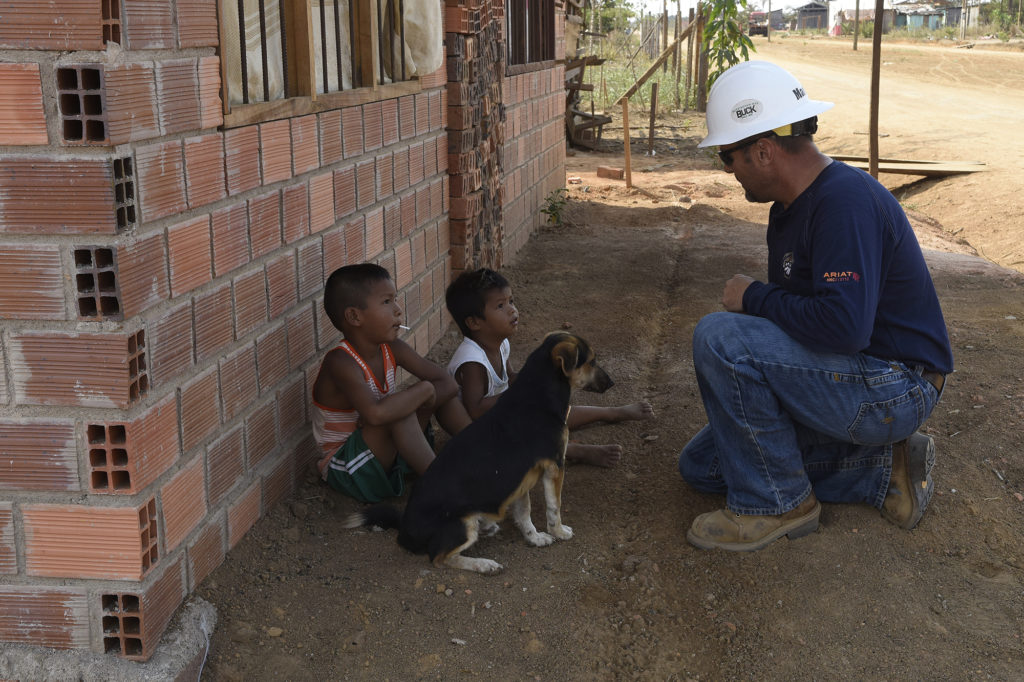
Photo Gallery
This story was originally published in RE Magazine.
